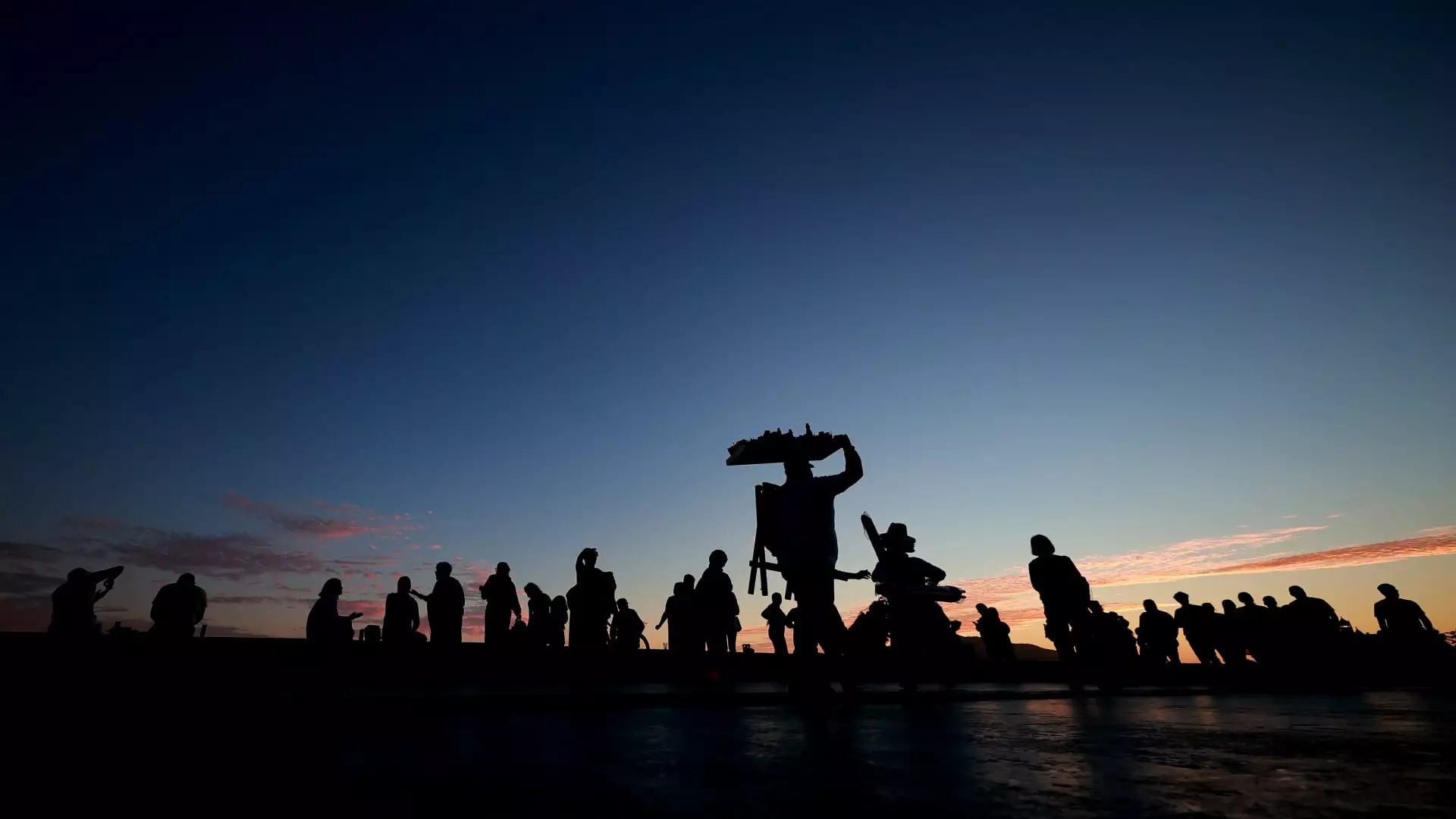The recent solar eclipse brought about an unexpected surge in activity at some of the country’s smaller airports. Typically, disruptions in air travel are caused by bad weather or heavy traffic in major city hubs. However, on Monday morning, airports from Burlington, Vermont, to southern Illinois experienced a different kind of congestion – high demand for prime views of the eclipse.
Southern Illinois Airport in Murphysboro, Illinois, was one of the airports that felt the impact of the eclipse. Alyssa Connell, the head of operations at the airport, mentioned that they had to close the runway to accommodate the influx of planes. The airport, which normally has three runways, reached maximum capacity with 230 small aircraft and 45 larger jets and turboprops making reservations for eclipse flights. This situation was unparalleled in the airport’s history.
Burlington International Airport in Vermont also faced unusual circumstances due to the eclipse. Dave Carman, the deputy director of aviation operations, revealed that the airport was expecting between 100 to 130 general aviation planes, in addition to scheduled commercial passenger traffic. The eclipse was marked as a significant event during the FAA’s planning call, highlighting the impact it had on air travel.
Airlines like Delta and United took advantage of the eclipse by offering special flights for passengers to witness the phenomenon from the sky. Delta sold eclipse flights from Dallas/Fort Worth International Airport to Detroit and from Austin, Texas, to Detroit. United Airlines reported a significant increase in bookings to cities like San Antonio, Cleveland, and Little Rock during the eclipse period. The eclipse presented airlines with opportunities to cater to passengers seeking a unique experience.
The eclipse not only affected air travel but also boosted tourism in areas along its path. Hotels, house rentals, and various businesses saw an increase in visitors as tourists flocked to witness the rare natural event. The eclipse brought attention to regions that are typically not in the spotlight and showcased the potential of smaller airports in accommodating significant travel events.
The solar eclipse shed light on the capabilities of smaller airports to handle increased traffic and serve as essential hubs for unique travel experiences. The impact of the eclipse went beyond astronomical observations and created opportunities for airlines, airports, and local businesses to capitalize on the surge in tourism.

Leave a Reply